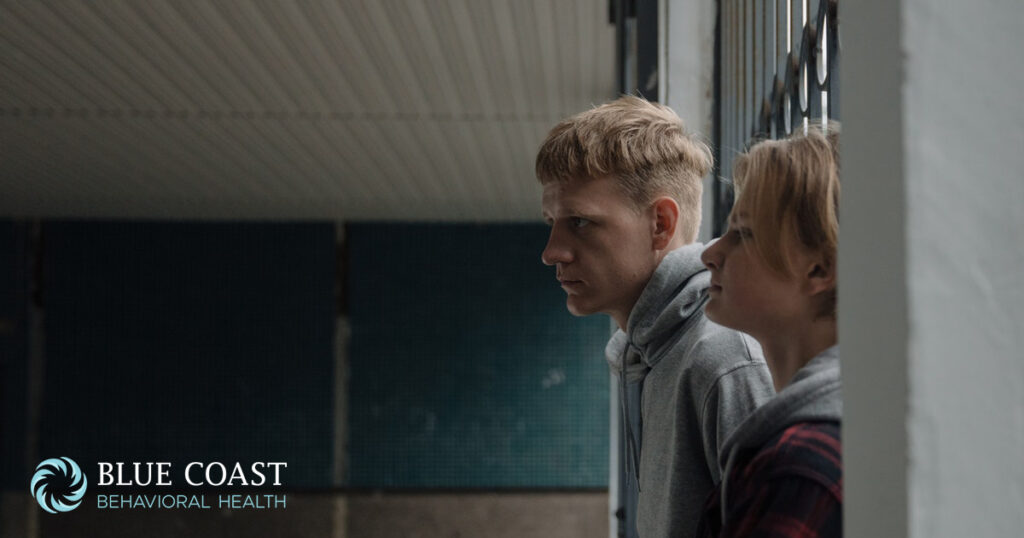We’ve all seen the trope. A person struggling with active addiction gets wrangled up and abruptly thrown in front of a concerned group of loved ones. A professional interventionist may be there to moderate the dramatic scene that follows. Loved ones confront the addict with how their addiction has hurt everyone in very blunt terms. It’s an aggressive approach to “helping someone help themselves.” But do interventions work? Is confronting an addict about their problem in such a jarring way actually helpful?
Timing Interventions Appropriately
To evaluate the potential outcome of an intervention, it is important to look at the addict’s state of mind. Addiction is a progressive disease that, while highly individualized, often follows certain patterns. This is especially true regarding addicts going to treatment. In some cases, an intervention can be more hurtful than helpful.
The stages of change describe the psychological process that addicts go through on their way to sobriety. It is rare indeed for a true addict to simply decide one day that “enough is enough,” drop their behaviors, and get sober by such a simple, abrupt impulse to get clean. Rather, their thinking slowly shifts over time in distinct phases. Trying to stage an intervention too early in the stages of change can backfire.
What are the Stages of Change?
There are five to six (depending on the addict’s journey) of change. The stages of change are as follows:
- Pre-Contemplation: Addict is actively using and sees no issues with their behavior.
- Contemplation: They’ve noticed some issues with their use and are considering the possibility of changing their ways.
- Preparation: They form intent to take action to address the problem. They are working on the true willingness to go to treatment.
- Action: Active modification of behavior. Typically done in an inpatient rehab setting.
- Maintenance: Sustained change. New behaviors replace the old. Therapy may be ongoing, but the person displays commitment to the new way of life.
- Relapse: Relapse is not a part of all recovery journeys, but it can happen. This may be a quick stumble before falling back to maintenance, or may require a full progression through the stages of change again. Relapse is much more common with individuals who were pressured into treatment before they were truly ready.
To understand whether an intervention would be helpful or not, the family should understand where their addict is in the stages of change. This can be discovered through non-confrontational questioning. Aggravated bluntness rarely helps when trying to assess an addict’s readiness for change, so a more subtle approach may be what’s needed before deciding whether an intervention could help.
Do Interventions Work? Understanding State of Mind
Addicts in stage one (pre-contemplation) do not typically respond well to interventions. Since they aren’t even entertaining the notion that their use is a problem, being publicly confronted about it can do more harm than good. It can cause them to dig their heels in and become obstinate to future suggestions of help. Recovery from addiction and alcoholism is a personal choice, and no one else can make it other than the person themselves.
As the addict moves through stages two (contemplation) and three (preparation), they become more suggestible. But even if a family does decide that an intervention is the right move, it’s important to handle the confrontation with nuance and care. Interventions are predicated on social pressure and this is not always the right approach to an addict or alcoholic who is considering a change in lifestyle. Often, a lighter touch is more effective.
Confidential Communication with a Neutral Third Party
Rather than surprising the person with an unexpected and uncomfortable group confrontation, consider getting them on the phone one-on-one with a drug and alcohol addiction counselor. Counselors know how to evaluate the stages of change in any individual. They are also a neutral third party that do not carry the baggage of family history. This dynamic gives the addict or alcoholic more agency in the conversation, and it is free from the sense that the conversation could be rooted in familial manipulation. Rather than being outnumbered and backed into a corner, they have the breathing room to measure their choices completely via their own free will.
Looking at the long term, recovery is a personal choice and no one can be pressured into a decision they don’t want to make. But that doesn’t mean that concerned loved ones just have to accept the addict’s destructive behavior.
Sometimes Boundaries are Required
As described in the stages of change, sometimes an addict just isn’t ready to get clean and sober. They are still in the fog of addiction and unwilling to even consider giving up their chemical dependency. After all, mind-altering chemicals provide short term neurological “fixes” for very complex issues, and those chemicals have already altered that person’s brain function to seek the chemical before even basic food and shelter. This is why drug-seeking behavior is so upsetting to surrounding family.
Individuals in the pre-contemplation stage often manipulate loved ones into enabling their addiction. Although it hurts, this behavior is not malicious. Chemical dependency can make people behave in ways that are contrary to their character (lying, cheating, stealing, etc). When this behavior occurs, it is critical that loved ones do not enable the behavior. Putting a foot down can mean a lot of things: refusing to give them money, not providing shelter, declining to bail them out of jail, and not making excuses for them. Boundaries demonstrate one of the best ways loved ones can encourage addicts to seek help. The person can only be confronted with the consequences of their behavior if those consequences are truly real and enforced.
If you or a loved one is seeking help for substance abuse, Blue Coast Behavioral Health counselors are available by phone 24/7: 714-203-2708




